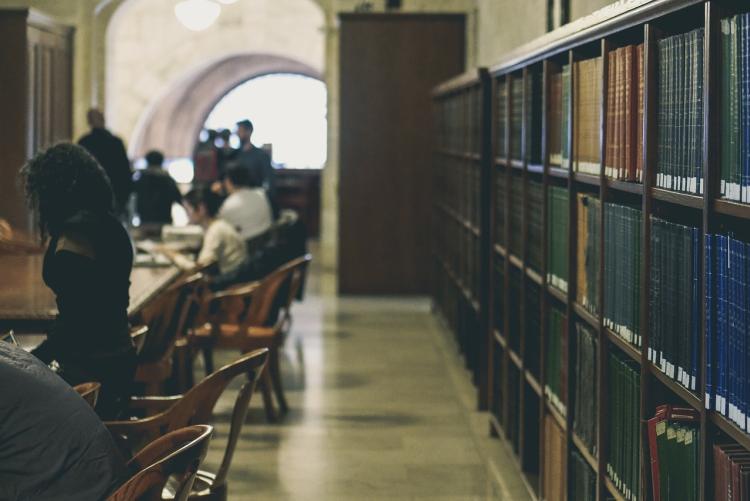The Graduate Student Workshop Program (GSWP) emphasizes instruction, participation, and discussion among graduate students.

History
The Graduate Student Workshop Program was founded by Wayne Alpern, who acted as Administrative Director of the Program from 2006–2011, and whose efforts, innovative ideas, and financial contributions supported the Program during its initial years.
Eligibility and Selection
- All full-time students registered in a graduate program in music theory, or in a graduate program in musicology or composition with a substantial theory component, and who have not received their Ph.D. as of June 15, 2026, are eligible to apply. (Separate workshop opportunities are also available to those who have completed a Ph.D.) Students seeking a MM degree are welcome to apply.
- Participants are selected by a random draw from the pool of applicants.
- The GSWP is intended to provide students with the opportunity to study with a professor not at their home institution; therefore, students affiliated with the institution of the instructor are not eligible for that instructor’s workshop.
- Prior GSWP participants are permitted to apply, but preference will be given to first-time applicants.
- To encourage interaction, each workshop is limited to approximately 10–12 participants.
Applications
- The application deadline is June 15, 2026.
- Please be sure to indicate for which workshop(s) you are applying—you may apply for one or both.
- You must also have a professor at your institution send an email to the Executive Director, confirming that you meet the requirements for participation stated above.
Commitments
- Please note that GSWP workshops will take place the morning of Friday, November 6; by applying you are committing to arrive at the conference in time to participate in the workshop.
- In the event that a student selected for a workshop also has a paper accepted to the conference and scheduled by the program committee at a time conflicting with the workshop, the student may need to forego participation in the workshop.
- These workshops may require many hours of preparation in advance, including both reading and writing assignments. You are not expected to be an expert in the subject matter of the workshop(s) for which you apply, but you should have a serious interest in and commitment to it.
Cost
There is no fee to participate in the program. Participants are responsible, however, for the cost of SMT membership and conference registration (but not at the time of application), as well as for other expenses of attendance, including transportation, housing, and meals.
2026 Workshops
Theorizing Black Music: Aesthetics, Sociality, Politics, Method
Marc Hannaford (University of Michigan)
Black American intellectual history houses a long tradition of theorizing musical meaning. This body of work overflows borders of disciplinary silos, universities, and musical genres, among others. It incorporates diverse aesthetics, political outlooks, and goals. This workshop gathers pieces of writing that consider manifold relationships between musical aesthetics, sociality, politics, and method. Together, we will explore what the field of music theory might learn from engaging with this work. In particular, we ask how it might inform discussions of the field’s epistemological terrain and our approaches to theory and analysis. We will also consider ways that music theory might contribute to these conversations, if anything.
Participants will read a collection of texts ahead of our meeting at the annual meeting and be asked to lead discussion on one or two of them. I will prioritize recently published texts in Black studies, Black feminism, and decolonial theory as a means of offering a diverse set of ideas and writers. Part of our workshop will be dedicated to critically discussing these texts, while another will focus on their readings’ possible music-theoretical and -analytical resonances.
Eye Training for Signed Music Analysis
Anabel Maler (University of British Columbia)
As musicians and music theorists, we spend time and effort training our ears to distinguish between different intervals, chords, rhythms, and voices. For all our years spent on ear training, though, we spend very little time on eye training. All of our careful listening will therefore come to naught when faced with a visual-kinesthetic form of music like sign language music. This workshop, then, will train your eyes to better understand the nuances of sign language music.
Participants will be given a few readings to prepare for the workshop, and will also be invited to bring in examples of sign language music to analyze together. In the workshop, we will explore different elements of signed music such as body positioning, use of the signing space, movement types, head movements, eye gaze, and various types of facial movements. We will watch videos carefully to identify these movements and associate them with aspects of sign language musicality.
No prior knowledge of American Sign Language is required to take this workshop. This workshop will not provide any instruction in ASL; if participants are interested in learning ASL outside of the workshop, resources for learning ASL from Deaf instructors will be provided.
Contact
For additional information, please contact the Chair of the Committee on Workshop Programs.
